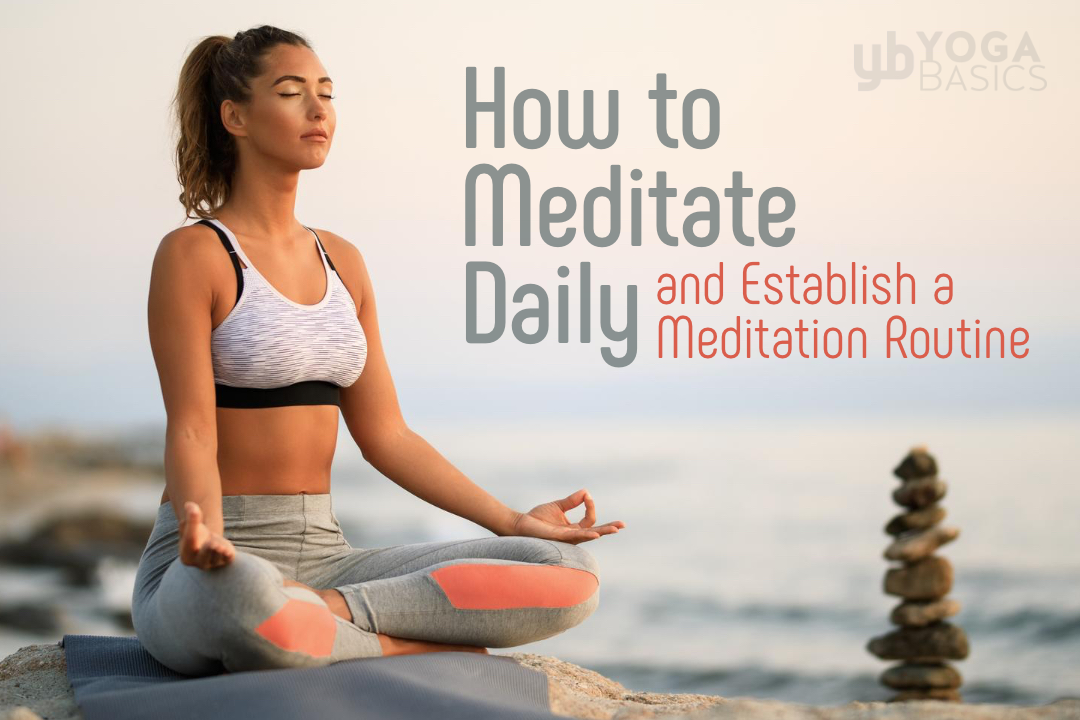Introduction
In today’s fast-paced world, finding a moment of stillness can seem impossible. However, daily meditation offers a powerful way to regain balance, reduce stress, and enhance overall well-being. Whether you’re a beginner or an experienced practitioner, establishing a daily meditation habit can be transformative.
This guide will explore what meditation is, why we should meditate daily, how to meditate, the basics of meditation, the 555 rule of meditation, the best morning meditation techniques, and the benefits of meditating every day. We’ll also discuss possible side effects and recommend essential accessories to improve your meditation practice.
What is meditation?
Meditation is a practice that involves focusing the mind and eliminating distractions to achieve a state of mental clarity and emotional calm. It has been used for centuries across various cultures and religions to promote inner peace, self-awareness, and spiritual growth. There are different forms of meditation, including mindfulness meditation, guided meditation, transcendental meditation, and loving-kindness meditation.
Types of Meditation
There are various types of meditation, each offering unique benefits:
- Mindfulness Meditation—Focuses on being present in the moment without judgment, helping to cultivate awareness and reduce stress.
- Guided Meditation—Uses audio or visual instructions to lead the practice, making it ideal for beginners.
- Transcendental Meditation—Involves silently repeating a mantra for deep relaxation and mental clarity.
- Loving-Kindness Meditation (Metta)—Centers on cultivating compassion and kindness towards oneself and others.
- Body Scan Meditation—Brings awareness to different parts of the body to release tension and promote relaxation.
- Zen Meditation (Zazen)—A Buddhist practice focusing on posture, breath control, and deep introspection.
- Vipassana Meditation—Involves deep observation of thoughts and sensations to develop insight and mindfulness.
- Chakra Meditation—Aims to balance the body’s energy centers (chakras) for physical and emotional well-being.
- Yoga Meditation—Combines movement with mindful breathing and awareness for enhanced relaxation.
- Mantra Meditation—Uses a repeated word or phrase to enhance focus and spiritual growth.
Each meditation type can be tailored to individual needs, making it accessible for everyone.
Why Should We Meditate Daily?
Practicing meditation daily has profound benefits that impact all aspects of life:
- Mental Benefits: Enhances focus, reduces stress, and helps regulate emotions.
- Physical Benefits: Lowers blood pressure, improves sleep quality, and strengthens the immune system.
- Spiritual and Mindfulness Benefits: Increases self-awareness, fosters inner peace, and improves mindfulness in daily life.
- Productivity Boost: Helps improve concentration and decision-making skills.
- Emotional Stability: Encourages a more balanced response to stress and daily challenges.
Numerous studies have shown that just a few minutes of meditation each day can rewire the brain, promoting long-term happiness and resilience.
How to Meditate
Starting a meditation practice is simple. Here’s a step-by-step guide:
- Find a Quiet Space: Choose a distraction-free environment.
- Sit Comfortably: Use a cushion, chair, or meditation bench.
- Close Your Eyes: Gently shut your eyes to minimize distractions.
- Focus on Your Breath: Pay attention to your inhalation and exhalation.
- Acknowledge Thoughts Without Judgment: If your mind wanders, gently bring your focus back to your breath.
- Start Small: Begin with 5-10 minutes and gradually increase the duration.
- Be Consistent: Aim for daily practice to experience full benefits.
What are the basics of meditation?
To build a strong foundation for meditation, keep these basics in mind:
- Posture Matters: Sit with a straight back to allow deep breathing.
- Breathing is Key: Deep, rhythmic breathing enhances relaxation.
- Awareness Over Perfection: Meditation is about presence, not perfection.
- Guidance Helps: Beginners can start with guided meditations.
- Patience is Essential: Benefits come with consistency and time.
What is the 555 Rule of Meditation?
The 555 rule of meditation is a simple yet effective method to help beginners build a meditation habit. It consists of:
- 5 Minutes of Breathing: Deep, conscious breathing to relax the body.
- 5 Minutes of Observing: Observing thoughts, sensations, or surroundings without judgment.
- 5 Minutes of Reflecting: Gently reflecting on gratitude, goals, or affirmations.
This structure keeps meditation simple and prevents overwhelm while ensuring a balanced session.
What is a good meditation to start the day?
Morning meditation sets the tone for a peaceful and productive day. Here are some recommended techniques:
- Mindfulness Breathing: Focus on deep breathing to clear the mind.
- Gratitude Meditation: Think of three things you’re grateful for.
- Guided Visualization: Picture a successful and happy day ahead.
- Affirmation Meditation: Repeat positive statements like, “I am calm and in control.”
A quick 5-10 minute meditation script can help you ease into the day with clarity and positivity.
Is It Good to Meditate Every Day?
Yes! Daily meditation offers numerous benefits, including:
- Improved emotional regulation and resilience.
- Enhanced concentration and productivity.
- Reduced stress, anxiety, and depression.
- Increased feelings of happiness and fulfillment.
Scientific studies show that even 10 minutes of daily meditation can lead to significant improvements in mental health.
What Are the Side Effects of Daily Meditation?
While meditation is generally beneficial, some people may experience:
Restlessness: Difficulty sitting still in the beginning.
Emotional Release: Old emotions may surface, leading to temporary discomfort.
Overwhelm: Beginners may struggle with maintaining focus.
If any side effects occur, adjust your practice by shortening sessions, using guided meditations, or taking breaks when necessary.
Essential Accessories for Better Meditation
Using the right meditation accessories can enhance your experience. Consider these:
Meditation Cushion (Zafu) – Provides proper posture and comfort.
Yoga Mat—Great for grounding and support.
Incense or essential oils—helps create a calming atmosphere.
Noise-Canceling Headphones—Ideal for guided meditation.
Meditation Bench—Offers an alternative sitting posture.
Singing Bowl or Chimes—Aids in deepening meditation.
Journaling Notebook—Record insights and reflections after meditation.
Conclusion
Daily meditation is a powerful tool for improving mental, physical, and emotional well-being. By practicing consistently, even for just a few minutes a day, you can experience profound benefits.
Ready to start? Try the 7-day daily meditation challenge and share your experience. Let meditation become a natural and rewarding part of your daily routine!



